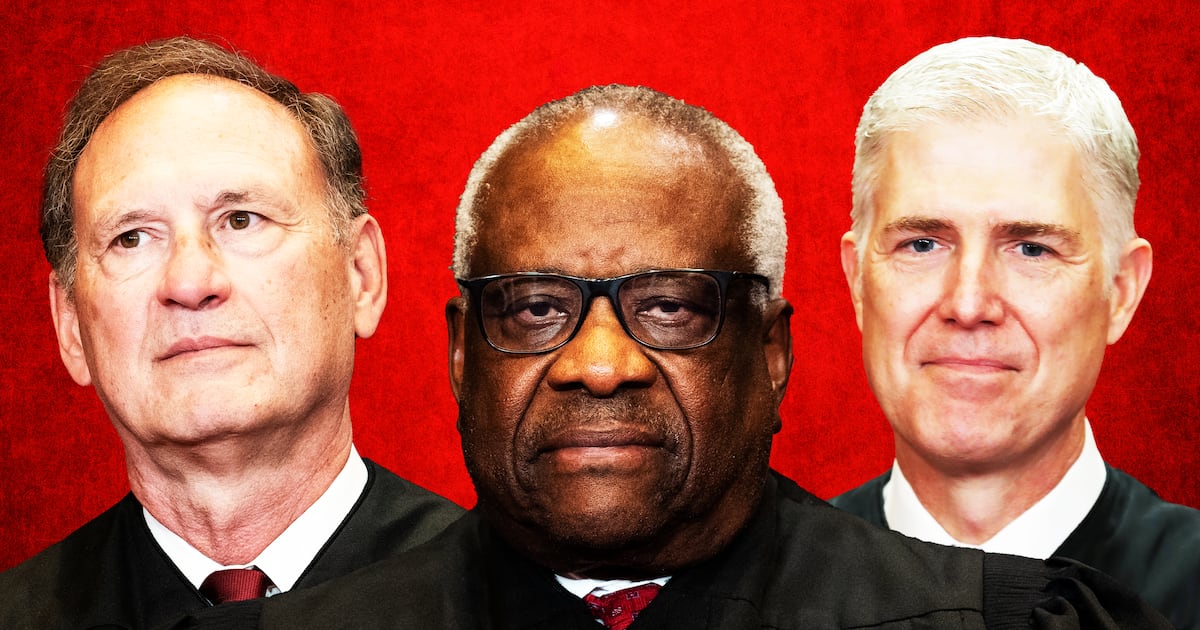Retired General Mike Flynn has had a tough couple weeks, and the White House seems more than happy to kick him while he’s down.
President Donald Trump’s former national security adviser worked with White House lawyers last month to correct a financial disclosure statement that omitted any mention of payments from Russian government-linked entities, only to see the White House release that information to the press.
The White House would have been entirely within its rights keeping the information to itself—and it did so for other officials who amended financial disclosure statements.
ADVERTISEMENT
Instead they released them, causing an additional headache for Flynn and casting more suspicion on the former Trump adviser.
An official cited restrictions on communication with Flynn, but a source close to Flynn says the White House directly advised his attorney on the amended disclosure.
Days after the White House chose to reveal Flynn’s initial omissions, when top Trump strategist Steve Bannon was removed from the National Security Counsel, anonymous White House officials spun his presence there as an effort to keep Flynn in check. With Flynn gone, Bannon’s presence was no longer needed, the officials said.
Flynn’s week of bad press, and the apparent hostility from his former White House colleagues, came on the tail end of reports that he was seeking immunity—unsuccessfully thus far—from congressional investigators in exchange for testimony on Russian meddling in last year’s presidential election.
“General Flynn certainly has a story to tell, and he very much wants to tell it, should the circumstances permit,” Flynn’s attorney Robert Kelner said at the time.
That statement immediately preceded a series of unfortunate events for Flynn, who is at the center of ongoing controversy over reports that U.S. intelligence officials intercepted communications from Trump campaign officials last year.
First, the White House publicly revealed Flynn’s initial failure to disclose payments for a speech at the tenth anniversary gala of Russian government sponsored propaganda network RT, or Russia Today.
That was information that the White House could have kept private. Its released led to allegations of impropriety from some congressional Democrats—including Rep. Eric Swalwell, who sits on the House Intelligence Committee, one of the panels from which Flynn sought immunity.
Of the 180 officials for whom the White House released financial disclosure statements last week, Flynn appeared to be the only one who had original and amended versions of that statement sent out to the media.
Discrepancies between the two disclosures raised red flags due to payments from RT and two other Russian entities, cybersecurity firm Kaspersky and airline Volga Dnepr. None of the three had been disclosed in Flynn’s initial filing.
But amendments to financial disclosure statements are routine. Numerous other Trump administration officials amended their initial disclosure forms without having their initial forms—and their accompanying errors or omissions—released to the press.
“Virtually all filers in every administration amend their disclosures from time to time because of the complexity of the forms and the precision of the information required,” a White House source familiar with the disclosure process acknowledged.
The source said that Flynn’s case was unique due to the “unusual circumstances” surrounding his resignation from the White House in February.
Flynn had stepped down after failing to disclose discussions with Moscow’s ambassador to the U.S. during last year’s presidential campaign regarding American sanctions against Russia.
The White House official also alluded to restrictions on communications between Flynn and the White House counsel’s office. They released both forms “to ensure complete transparency under those circumstances,” the official said.
But a source close to Flynn says there were no such restrictions. In fact, the counsel’s office was in direct contact with Flynn’s attorney in an effort to sort out any errors or omissions in Flynn’s initial ethics filing.
“When they contacted Gen. Flynn’s representatives last week and asked for an updated version, there were back and forth discussions about how speaking fees should be disclosed and Gen. Flynn followed the White House’s guidance,” the source said.
White House counsel Stefan Passantino referred questions to the press office, which did not respond to repeated requests for additional information that might resolve that discrepancy.
Even after Flynn incorporated input directly from top White House attorneys, the counsel’s office released both versions of the form, leading to additional scrutiny of Flynn’s controversial ties to Russia-linked entities.
Critics portrayed Flynn’s initial failure to disclose payments from RT, Kaspersky, and Volga Dnepr as suspicious at best and nefarious at worst. Swalwell and Sen. Tom Udall both cited the amended disclosure in an official capacity this week.
As congressional Democrats hammered Flynn for that reporting oversight, White House officials were taking anonymous shots at Flynn in the press.
When Bannon was removed from the NSC on Wednesday, one official told The Daily Beast that the shadow Flynn had cast over the White House panel was no longer an issue, and Bannon’s presence was therefore no longer needed.
Bannon was “only on [NSC] to babysit Flynn.” Trump “was losing faith” in him, the official said.






